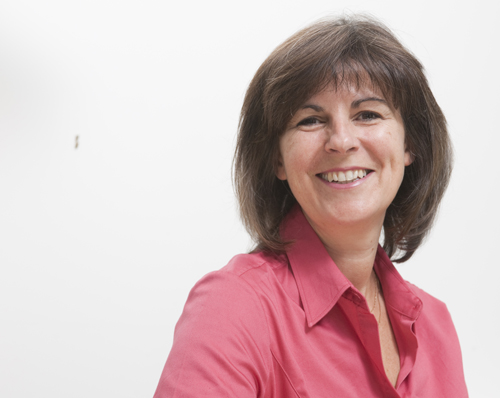
Joanne Shoveller, vice-president (advancement), has passed the midpoint of the marathon she’s been running for the past year. It’s not a real marathon but the BetterPlanet Project, the University of Guelph’s $200-million fundraising campaign that’s overseen by Shoveller.
Officially launched last September, the campaign has raised nearly $110 million from communities, industries, governments and individuals. In the past year, the project has drawn contributions from more than 14,000 people, including 4,300 first-time donors.
“This unique campaign is transforming the levels and the ways that people and companies give, and is also transforming the University through these investments,” she says.
Shoveller is not running alone. Tye Burt, BA ’80, president and chief executive officer of Kinross Gold Corp. and vice-chair of the University’s Board of Governors, serves as campaign chair. And the race includes thousands of other marathoners: administrators, deans, faculty, students, alumni, staff, board members, volunteers and donors.
“This is an ambitious effort that we are undertaking together,” she says. “It’s been an incredible opportunity to work alongside a growing, passionate community of people.”
Shoveller is now doing what most runners do at the midpoint of a long-distance event: refuelling, reassessing and reflecting on the distance travelled and the distance remaining. When it comes to strategy and focus, “We’re right on target; this is a campaign for the times,” she says.
By focusing on its historical strengths and corresponding talents of faculty, staff and students, the University has developed a unique niche in university fundraising. Specifically, the campaign goal is to support and enhance work by U of G professors in food, water, environment, health and communities − pillars of The BetterPlanet Project and issues at the root of many of the world’s challenges. “Faculty and the work that they are doing were the impetus and inspiration for the campaign.”
Shoveller says U of G professors have worked for decades to improve quality of life in Canada and around the world. They’ve crossed borders as researchers, teachers and volunteers to share knowledge and ideas and to change science and society with their discoveries.
They also motivate and inspire students here at home. “Whenever I meet with alumni, they always talk about the impact their professors had on them; faculty involvement really has a multiplier effect.”
She says The BetterPlanet Project is the University’s way of showing the world the impact U of G faculty and staff are having through teaching and research. “We want to attract financial support to maintain and build on those efforts.”
Recent gifts that have pushed the campaign past the midpoint include:
- $2 million from Burt and from the U of G Alumni Association to restore the popular first-year seminars program;
- $3 million from Loblaw Companies limited to establish a chair in sustainable food production;
- $1 million from Guelph-based Linamar Corp. for engineering scholarships;
- $1.25 million from several donors to build a laboratory dedicated to environmental research on water;
- $2 million from the E.P. Taylor Equine Research Fund to support clinical research in the health and performance of racehorses;
- $770,000 from Egg Farmers of Canada toward a poultry welfare research program; and
- $500,000 to establish the Anne Lockie and Frederic Promoli Professorship in the College of Management and Economics.
But Shoveller wants to cover more ground. “We need to run smarter. We have the ability to up our stride; I believe that we are stronger than we realize.”
Beyond fundraising itself, she’s talking about raising enthusiasm and support. “The most important thing faculty, staff and students can do is get on board, understand the power and influence of their work, and tell us their ideas so we can help find people outside the University to support them.
“We know that the University is doing incredible things. What we need to do now is be specific: How do we take the great things that we are doing, accelerate or transform the scale, and show our relevance and impact more broadly?”